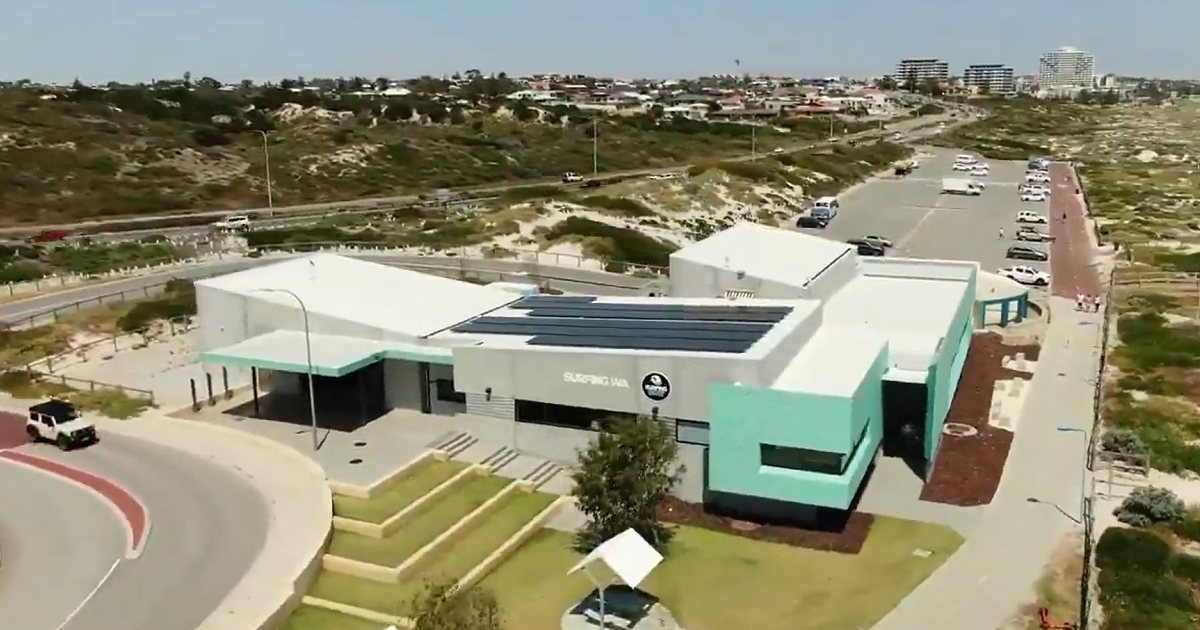
Sun, surf, sand and solar power – Surfing WA’s new multi-million-dollar facility at Trigg Beach has it all (plus a battery).
Trigg Beach is a well-known destination in Perth’s northern suburbs. Situated around 20 kilometres from the CBD by road, it’s a popular location for body boarders, kite surfers and surfers; and it’s also home to Surfing WA’s headquarters.
Surfing WA has been Western Australia’s governing body for surfing since 1964 and has operated a Surf School at Trigg Beach for more than 35 years. Among other functions, Surfing WA also manages events across the state including the Margaret River Pro, Whalebone Classic and WA Pro Surf Series.
A surge in surfing’s popularity saw the organisation outgrow where it was previously headquartered quite some time ago. After years in the pipeline the organisation now has spiffy new digs to settle in to, situated around 250 metres of its old home.
Supported by funding from Australian Federal Government’s (now defunct) Community Development Grants scheme, the new facility boasts office space with stunning views, a Surf School, storage facilities and amenities for training, development, meetings and various functions not necessarily related to surfing.
“Our new building represents a real coming of age for Surfing WA and will be a springboard to even bigger and better things in the future,” said Surfing WA Chair Mike Best.
“Sustainability At Its Core”
The building was designed to take full advantage of natural light, prevailing winds for air flow, and includes features such as sensor LED lights and double glazed windows.
But as well as saving energy through thoughtful design, the building also generates and stores electricity. Plico Energy has provided a 30 kW solar panel and 32 kWh battery system enabling Surfing WA to self-consume more solar electricity and power through blackouts should they occur.
A 30kW solar installation in Trigg with panels installed at a relatively shallow angle such as in Surfing WA’s case can be expected to generate around 50,000 kWh each year. That’s equivalent to the annual electricity consumption of approximately ten WA households.
Commercial Solar For Community Groups
Community organisations with their own premises and suitable rooftops can make big savings on energy bills with a residential-sized or commercial solar installation; with or without a battery. Simple payback can be achieved much faster without a battery; particularly if the organisation’s activities occur predominantly during daylight hours.
As for funding a PV project, solar systems under 100kW capacity are eligible for Australia’s solar rebate that can knock up to tens of thousands of dollars off the up-front purchase cost.
Even if initial outlay still proves to be a challenge and grants aren’t available to cover it, some commercial solar providers offer arrangements such as Power Purchase Agreements that don’t require any funding up-front and can still offer significant savings over conventional mains-grid supply.
And in the case of businesses with a suitable rooftop – it’s not so much a case of whether to go solar, but why they haven’t done so yet.
Learn more about commercial solar.

 RSS - Posts
RSS - Posts



Speak Your Mind